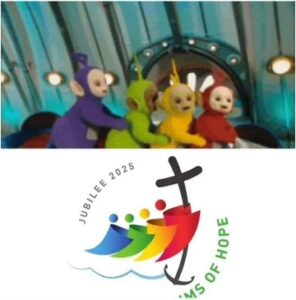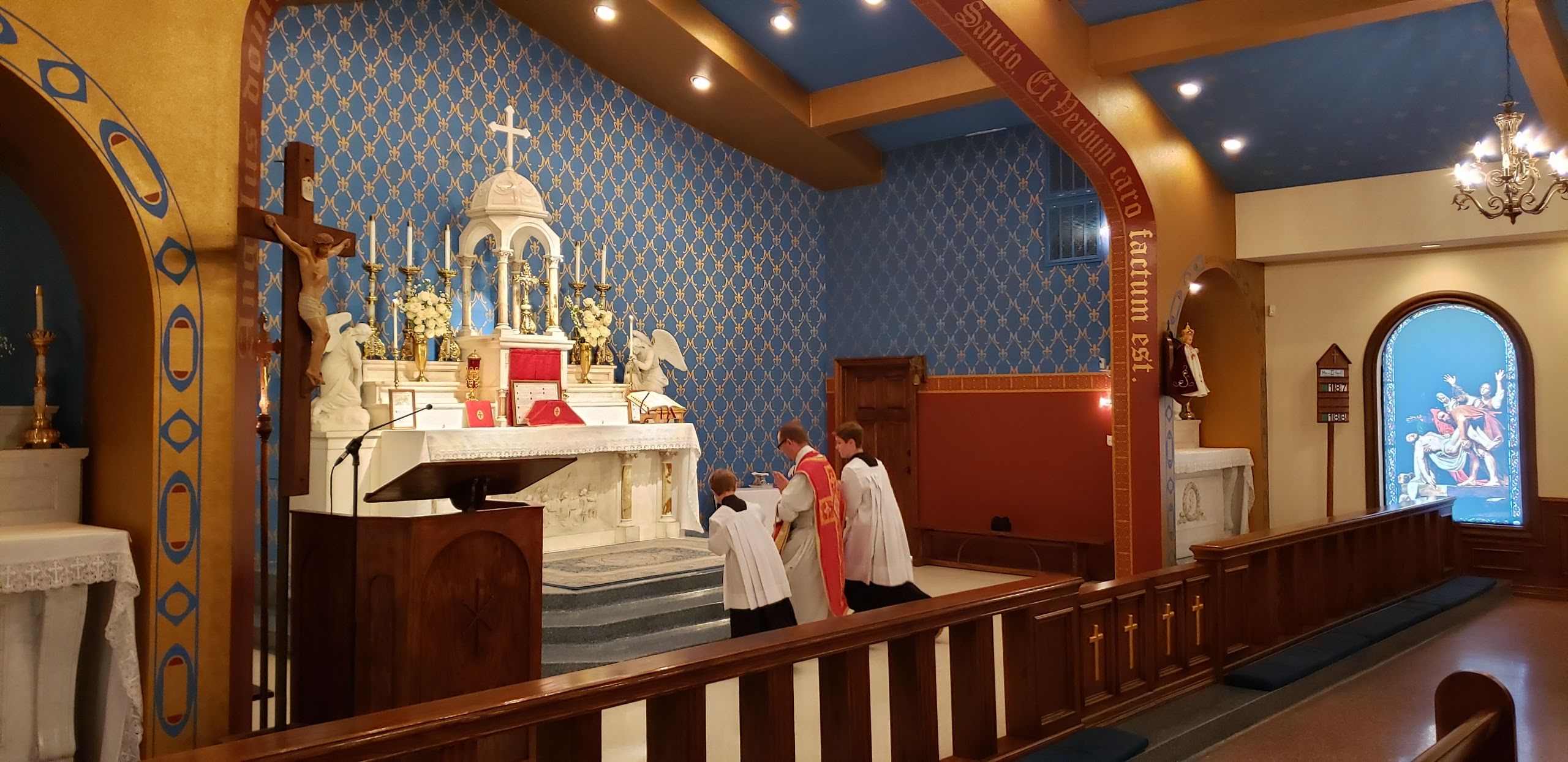June and July mark some bittersweet anniversaries in the traditional movement. It was on 30 June 1988 that Archbishop Marcel Lefebvre and Bishop Antonio de Castro Mayer did episcopal consecrations without the approval of Rome. Pope John Paul II quickly wrote a document called Ecclesia Dei Adflicta, meaning “On the Afflicted Church of God.” This is a barely-veiled reference to imply that Archbishop Lefebvre himself was “afflicting the Church of God” by consecrating bishops without the Pope’s approval. Three weeks later, on 18 July 1988, the FSSP was founded with the approval of Rome to remain both canonically regular and maintain the old-rite sacraments.
I believe one of the main fulcrum points in these events of 1988 was Pope John Paul II’s motu proprio entitled Ecclesia Dei Adflicta. Today, 2 July 2022, is the 34th anniversary of that document. The paragraph I want to consider is what the Pope had to write about old-ways vs. new-ways of doctrine/liturgy as it reads:
To the bishops especially it pertains, by reason of their pastoral mission, to exercise the important duty of a clear-sighted vigilance full of charity and firmness, so that this fidelity may be everywhere safeguarded. However, it is necessary that all the Pastors and the other faithful have a new awareness, not only of the lawfulness but also of the richness for the Church of a diversity of charisms, traditions of spirituality and apostolate, which also constitutes the beauty of unity in variety: of that blended “harmony” which the earthly Church raises up to Heaven under the impulse of the Holy Spirit. Moreover, I should like to remind theologians and other experts in the ecclesiastical sciences that they should feel themselves called upon to answer in the present circumstances. Indeed, the extent and depth of the teaching of the Second Vatican Council call for a renewed commitment to deeper study in order to reveal clearly the Council’s continuity with Tradition, especially in points of doctrine which, perhaps because they are new, have not yet been well understood by some sections of the Church.—Pope John Paul II, Ecclesia Dei Adflicta, paragraph 5a-b, 2 July 1988.
Did you notice that last sentence? Pope John Paul II wrote that we need theological “experts” to help us understand “points of doctrine, which, perhaps because they are new, have not yet been well-understood by some sections of the Church.” This should give any reader pause to ask how there can be “new points of doctrine” in a Church that claims to hand on the same faith handed-off by Christ directly to the Apostles. In other words, doctrine can never be new! That sentence defies the very definition of an apostolic Church made to simply hand-on what was given to it. (Tradidi enim vobis in primis quod et accepi.—1 Cor 15:3)
Indeed, that very insistence on “new points of doctrine” would one day be a fly in the ointment of his successor, Pope Benedict XVI, attempting to anoint his confused flock with a salve he called the “hermeneutic of continuity.” Thankfully (and I mean this, truly) the current regime has blown out of the water any sense of a “hermeneutic of continuity” in both doctrine and liturgy. The “hermeneutic of rupture” is currently a gaping wound for all to see. There is currently an apostolic Church and a NuChurch claiming to occupy the same spaces.

The above Teletubby addition to a new Vatican logo is obviously a crafted-meme to make an exaggerated point. But even the logo without the Teletubby congo line shows how far the hermeneutic of continuity (the notion that the pre-Vatican II and post-Vatican II doctrine and liturgy can just be squared if you squint hard enough) has become an impossibility. Pope John Paul II, claiming that traditionalists were “afflicting the Church” accidentally revealed in that very document what truly afflicts the Church of God: A New Faith. If the 20th century seemed harmless enough to you, but now you’ve reached your boiling point with a rainbow logo, keep in mind that such madness is simply the logical outcome of a diversion from the Apostolic Catholicism that Christ expected his bishops (like Lefebvre and Castro de Mayer) to transmit. God sent His prophets. We called them “afflicting schismatics.” Now we reap what we sow in recognizing even small “new points of doctrine.”
